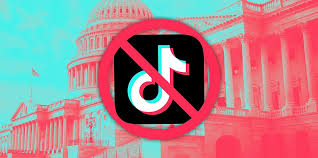When it comes to TikTok, I find myself in the middle of a complicated debate. On one hand, there’s the undeniable need to protect national security. On the other, I think about the personal freedoms we enjoy as U.S. citizens, which include choosing the platforms we use to connect, express, and communicate. As I’ve followed the latest developments surrounding the potential ban of TikTok in the U.S., it’s clear this isn’t a straightforward issue. It’s a balancing act—one that affects individual users, businesses, and our broader technological landscape.
The National Security Argument
From my perspective, the national security concerns surrounding TikTok are not something to brush off lightly. The app is owned by ByteDance, a Chinese company, and it collects a massive amount of data from its users—everything from browsing history to location details. The worry here is that this data could end up in the hands of the Chinese government, given the country’s laws that can compel businesses to cooperate with intelligence agencies.
The implications are vast. Could this data be used to track American citizens or influence public opinion through algorithmic manipulation? These are legitimate concerns. The potential risks extend beyond individual users; they touch on issues of national security and the safety of critical infrastructure. As someone who values privacy and security, I can’t ignore these risks.
Personal Freedom and Expression
At the same time, banning TikTok raises significant questions about personal freedom. For many Americans, TikTok is more than an app; it’s a platform for creativity, self-expression, and community. Taking it away feels like a step toward limiting our First Amendment rights. If we start banning platforms because of potential risks, where does it end?
The American Civil Liberties Union has argued that banning TikTok would infringe on constitutional rights. I can see their point. The government’s role should be to protect its citizens, but it should also uphold the freedoms that define us as a nation. How do we strike that balance? It’s a tough question without an easy answer.
The Corporate and Technological Perspective
For businesses, the TikTok debate has a different layer of complexity. Many organizations are concerned about the app’s potential to access sensitive corporate information, especially on devices used for work. With the rise of bring-your-own-device (BYOD) policies, the line between personal and professional device usage is blurrier than ever. This creates vulnerabilities that could be exploited.
Some companies have already taken proactive steps, banning TikTok on corporate devices or implementing stricter mobile device management policies. While these measures can mitigate risks, they also raise questions about employee autonomy and trust. It’s a balancing act, much like the larger debate surrounding TikTok itself.
Where Do We Go From Here?
As I reflect on this issue, I find it’s not just about TikTok; it’s about how we navigate the intersection of security, freedom, and technology in an increasingly interconnected world. Do we prioritize safety over personal choice? Or do we accept certain risks to preserve our freedoms?
The Supreme Court is poised to make significant decisions about TikTok’s future, and these rulings could set a precedent for how we handle similar cases in the future. For me, the ideal solution would find a way to address the security risks without undermining the freedoms that make our society unique. Whether that means stricter regulations, increased transparency, or even a change in ownership for TikTok, it’s clear that compromise will be key.
This debate has made me more aware of the complexities of living in a digital age. It’s not just about apps or data; it’s about the values we hold dear and the lengths we’re willing to go to protect them. As this story unfolds, I’ll be watching closely, hopeful for a solution that respects both our safety and our freedoms.
